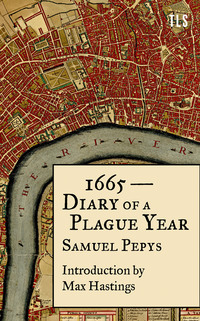
Полная версия
Diary of Samuel Pepys - Complete 1660 N.S.
Pepys stayed in Edinburgh for a short time, and the Duke of York allowed him to be present at two councils. He then visited; with Colonel George Legge, some of the principal places in the neighbourhood, such as Stirling, Linlithgow, Hamilton, and Glasgow. The latter place he describes as "a very extraordinary town indeed for beauty and trade, much superior to any in Scotland."
Pepys had now been out of office for some time, but he was soon to have employment again. Tangier, which was acquired at the marriage of the King to Katharine of Braganza, had long been an incumbrance, and it was resolved at last to destroy the place. Colonel Legge (now Lord Dartmouth) was in August, 1683, constituted Captain-General of his Majesty's forces in Africa, and Governor of Tangier, and sent with a fleet of about twenty sail to demolish and blow up the works, destroy the harbour, and bring home the garrison. Pepys received the King's commands to accompany Lord Dartmouth on his expedition, but the latter's instructions were secret, and Pepys therefore did not know what had been decided upon. He saw quite enough, however, to form a strong opinion of the uselessness of the place to England. Lord Dartmouth carried out his instructions thoroughly, and on March 29th, 1684, he and his party (including Pepys) arrived in the English Channel.
The King himself now resumed the office of Lord High Admiral, and appointed Pepys Secretary of the Admiralty, with a salary of L500 per annum. In the Pepysian Library is the original patent, dated June 10th, 1684: "His Majesty's Letters Patent for ye erecting the office of Secretary of ye Admiralty of England, and creating Samuel Pepys, Esq., first Secretary therein." In this office the Diarist remained until the period of the Revolution, when his official career was concluded.
A very special honour was conferred upon Pepys in this year, when he was elected President of the Royal Society in succession to Sir Cyril Wyche, and he held the office for two years. Pepys had been admitted a fellow of the society on February 15th, 1664-65, and from Birch's "History" we find that in the following month he made a statement to the society:—
"Mr. Pepys gave an account of what information he had received from the Master of the Jersey ship which had been in company with Major Holmes in the Guinea voyage concerning the pendulum watches (March 15th, 1664-5)."
The records of the society show that he frequently made himself useful by obtaining such information as might be required in his department. After he retired from the presidency, he continued to entertain some of the most distinguished members of the society on Saturday evenings at his house in York Buildings. Evelyn expressed the strongest regret when it was necessary to discontinue these meetings on account of the infirmities of the host.
In 1685 Charles II. died, and was succeeded by James, Duke of York. From his intimate association with James it might have been supposed that a long period of official life was still before Pepys, but the new king's bigotry and incapacity soon made this a practical impossibility. At the coronation of James II. Pepys marched in the procession immediately behind the king's canopy, as one of the sixteen barons of the Cinque Ports.
In the year 1685 a new charter was granted to the Trinity Company, and Pepys was named in it the first master, this being the second time that he had held the office of master.
Evelyn specially refers to the event in his Diary, and mentions the distinguished persons present at the dinner on July 20th.
It is evident that at this time Pepys was looked upon as a specially influential man, and when a parliament was summoned to meet on May 19th, 1685, he was elected both for Harwich and for Sandwich. He chose to serve for Harwich, and Sir Philip Parker was elected to fill his place at Sandwich.
This parliament was dissolved by proclamation July 2nd, 1687, and on August 24th the king declared in council that another parliament should be summoned for November 27th, 1688, but great changes took place before that date, and when the Convention Parliament was called together in January and February, 1689-90, Pepys found no place in it. The right-hand man of the exiled monarch was not likely to find favour in the eyes of those who were now in possession. When the election for Harwich came on, the electors refused to return him, and the streets echoed to the cry of "No Tower men, no men out of the Tower!" They did not wish to be represented in parliament by a disgraced official.
We have little or no information to guide us as to Pepys's proceedings at the period of the Revolution. We know that James II. just before his flight was sitting to Kneller for a portrait intended for the Secretary to the Admiralty, and that Pepys acted in that office for the last time on 20th February, 1688-89, but between those dates we know nothing of the anxieties and troubles that he must have suffered. On the 9th March an order was issued from the Commissioners of the Admiralty for him to deliver up his books, &c., to Phineas Bowies, who superseded him as secretary.
Pepys had many firm friends upon whom he could rely, but he had also enemies who lost no opportunity of worrying him. On June 10th, 1690, Evelyn has this entry in his Diary, which throws some light upon the events of the time:—
On the 25th of this same month Pepys was committed to the Gatehouse at Westminster on a charge of having sent information to the French Court of the state of the English navy. There was no evidence of any kind against him, and at the end of July he was allowed to return to his own house on account of ill-health. Nothing further was done in respect to the charge, but he was not free till some time after, and he was long kept in anxiety, for even in 1692 he still apprehended some fresh persecution.
Sir Peter Palavicini, Mr. James Houblon, Mr. Blackburne, and Mr. Martin bailed him, and he sent them the following circular letter:—
He employed the enforced idleness caused by being thrust out of his employment in the collection of the materials for the valuable work which he published in 1690, under the title of "Memoirs of the Navy." Little more was left for him to do in life, but as the government became more firmly established, and the absolute absurdity of the idea of his disloyalty was proved, Pepys held up his head again as a man to be respected and consulted, and for the remainder of his life he was looked upon as the Nestor of the Navy.
There is little more to be told of Pepys's life. He continued to keep up an extended correspondence with his many friends, and as Treasurer of Christ's Hospital he took very great interest in the welfare of that institution. He succeeded in preserving from impending ruin the mathematical foundation which had been originally designed by him, and through his anxious solicitations endowed and cherished by Charles II. and James II. One of the last public acts of his life was the presentation of the portrait of the eminent Dr. John Wallis, Savilian Professor of Geometry, to the University of Oxford.
In 1701 he sent Sir Godfrey Kneller to Oxford to paint the portrait, and the University rewarded him with a Latin diploma containing in gorgeous language the expression of thanks for his munificence.'
On the 26th May, 1703, Samuel Pepys, after long continued suffering, breathed his last in the presence of the learned Dr. George Hickes, the nonjuring Dean of Worcester, and the following letter from John Jackson to his uncle's lifelong friend Evelyn contains particulars as to the cause of death:
Evelyn alludes in his Diary to Pepys's death and the present to him of a suit of mourning. He speaks in very high terms of his friend:—
The body was brought from Clapham and buried in St. Olave's Church, Hart Street, on the 5th June, at nine o'clock at night, in a vault just beneath the monument to the memory of Mrs. Pepys. Dr. Hickes performed the last sad offices for his friend.
Pepys's faithful friend, Hewer, was his executor, and his nephew, John Jackson, his heir. Mourning was presented to forty persons, and a large number of rings to relations, godchildren, servants, and friends, also to representatives of the Royal Society, of the Universities of Cambridge and Oxford, of the Admiralty, and of the Navy Office. The bulk of the property was bequeathed to Jackson, but the money which was left was much less than might have been expected, for at the time of Pepys's death there was a balance of L28,007 2s. 1d. due to him from the Crown, and none of this was ever paid. The books and other collections were left to Magdalene College, Cambridge, but Jackson was to have possession of them during his lifetime. These were the most important portion of Pepys's effects, for with them was the manuscript of the immortal Diary. The following are the directions for the disposition of the library, taken from Harl. MS., No. 7301:
The library and the original book-cases were not transferred to Magdalene College until 1724, and there they have been preserved in safety ever since.
A large number of Pepys's manuscripts appear to have remained unnoticed in York Buildings for some years. They never came into Jackson's hands, and were thus lost to Magdalene College. Dr. Rawlinson afterwards obtained them, and they were included in the bequest of his books to the Bodleian Library.
Pepys was partial to having his portrait taken, and he sat to Savill, Hales, Lely, and Kneller. Hales's portrait, painted in 1666, is now in the National Portrait Gallery, and an etching from the original forms the frontispiece to this volume. The portrait by Lely is in the Pepysian Library. Of the three portraits by Kneller, one is in the hall of Magdalene College, another at the Royal Society, and the third was lent to the First Special Exhibition of National Portraits, 1866, by the late Mr. Andrew Pepys Cockerell. Several of the portraits have been engraved, but the most interesting of these are those used by Pepys himself as book-plates. These were both engraved by Robert White, and taken from paintings by Kneller.
The church of St. Olave, Hart Street, is intimately associated with Pepys both in his life and in his death, and for many years the question had been constantly asked by visitors, "Where is Pepys's monument?" On Wednesday, July 5th, 1882, a meeting was held in the vestry of the church, when an influential committee was appointed, upon which all the great institutions with which Pepys was connected were represented by their masters, presidents, or other officers, with the object of taking steps to obtain an adequate memorial of the Diarist. Mr. (now Sir) Alfred Blomfield, architect of the church, presented an appropriate design for a monument, and sufficient subscriptions having been obtained for the purpose, he superintended its erection. On Tuesday afternoon, March 18th, 1884, the monument, which was affixed to the wall of the church where the gallery containing Pepys's pew formerly stood, was unveiled in the presence of a large concourse of visitors. The Earl of Northbrook, First Lord of the Admiralty, consented to unveil the monument, but he was at the last moment prevented by public business from attending. The late Mr. Russell Lowell, then the American Minister, took Lord Northbrook's place, and made a very charming and appreciative speech on the occasion, from which the following passages are extracted:—
In concluding this account of the chief particulars of Pepys's life it may be well to add a few words upon the pronunciation of his name. Various attempts appear to have been made to represent this phonetically. Lord Braybrooke, in quoting the entry of death from St. Olave's Registers, where the spelling is "Peyps," wrote, "This is decisive as to the proper pronunciation of the name." This spelling may show that the name was pronounced as a monosyllable, but it is scarcely conclusive as to anything else, and Lord Braybrooke does not say what he supposes the sound of the vowels to have been. At present there are three pronunciations in use—Peps, which is the most usual; Peeps, which is the received one at Magdalene College, and Peppis, which I learn from Mr. Walter C. Pepys is the one used by other branches of the family. Mr. Pepys has paid particular attention to this point, and in his valuable "Genealogy of the Pepys Family" (1887) he has collected seventeen varieties of spelling of the name, which are as follows, the dates of the documents in which the form appears being attached:
1. Pepis (1273); 2. Pepy (1439); 3. Pypys (1511); 4. Pipes (1511); 5. Peppis (1518); 6. Peppes (1519); 7. Pepes (1520); 8. Peppys (1552); 9. Peaps (1636); 10. Pippis (1639); 11. Peapys (1653); 12. Peps (1655); 13. Pypes (1656); 14. Peypes (1656); 15. Peeps (1679); 16. Peepes (1683); 17. Peyps (1703). Mr. Walter Pepys adds:—
The most probable explanation is that the name in the seventeenth century was either pronounced 'Pips' or 'Papes'; for both the forms 'ea' and 'ey' would represent the latter pronunciation. The general change in the pronunciation of the spelling 'ea' from 'ai' to 'ee' took place in a large number of words at the end of the seventeenth and beginning of the eighteenth-century, and three words at least (yea, break, and great) keep this old pronunciation still. The present Irish pronunciation of English is really the same as the English pronunciation of the seventeenth century, when the most extensive settlement of Englishmen in Ireland took place, and the Irish always pronounce ea like ai (as, He gave him a nate bating—neat beating). Again, the 'ey' of Peyps would rhyme with they and obey. English literature is full of illustrations of the old pronunciation of ea, as in "Hudibras;"
which was then a perfect rhyme. In the "Rape of the Lock" tea (tay) rhymes with obey, and in Cowper's verses on Alexander Selkirk sea rhymes with survey.' It is not likely that the pronunciation of the name was fixed, but there is every reason to suppose that the spellings of Peyps and Peaps were intended to represent the sound Pepes rather than Peeps.
In spite of all the research which has brought to light so many incidents of interest in the life of Samuel Pepys, we cannot but feel how dry these facts are when placed by the side of the living details of the Diary. It is in its pages that the true man is displayed, and it has therefore not been thought necessary here to do more than set down in chronological order such facts as are known of the life outside the Diary. A fuller "appreciation" of the man must be left for some future occasion.
JANUARY 1659-1660
Blessed be God, at the end of the last year I was in very good health, without any sense of my old pain, but upon taking of cold.
I lived in Axe Yard,
having my wife, and servant Jane, and no more in family than us three. My wife.... gave me hopes of her being with child, but on the last day of the year....[the hope was belied.]
[Ed. note:.... are used to denote censored passages]
The condition of the State was thus; viz. the Rump, after being disturbed by my Lord Lambert,
was lately returned to sit again. The officers of the Army all forced to yield. Lawson
lies still in the river, and Monk—[George Monk, born 1608, created Duke of Albemarle, 1660, married Ann Clarges, March, 1654, died January 3rd, 1676.]—is with his army in Scotland. Only my Lord Lambert is not yet come into the Parliament, nor is it expected that he will without being forced to it. The new Common Council of the City do speak very high; and had sent to Monk their sword-bearer, to acquaint him with their desires for a free and full Parliament, which is at present the desires, and the hopes, and expectation of all. Twenty-two of the old secluded members
having been at the House-door the last week to demand entrance, but it was denied them; and it is believed that [neither] they nor the people will be satisfied till the House be filled. My own private condition very handsome, and esteemed rich, but indeed very poor; besides my goods of my house, and my office, which at present is somewhat uncertain. Mr. Downing master of my office.
Jan. 1st (Lord's day). This morning (we living lately in the garret,) I rose, put on my suit with great skirts, having not lately worn any other, clothes but them. Went to Mr. Gunning's
chapel at Exeter House, where he made a very good sermon upon these words:—"That in the fulness of time God sent his Son, made of a woman," &c.; showing, that, by "made under the law," is meant his circumcision, which is solemnized this day. Dined at home in the garret, where my wife dressed the remains of a turkey, and in the doing of it she burned her hand. I staid at home all the afternoon, looking over my accounts; then went with my wife to my father's, and in going observed the great posts which the City have set up at the Conduit in Fleet-street. Supt at my father's, where in came Mrs. The. Turner—[Theophila Turner, daughter of Sergeant John and Jane Turner, who married Sir Arthur Harris, Bart. She died 1686.]—and Madam Morrice, and supt with us. After that my wife and I went home with them, and so to our own home.
2nd. In the morning before I went forth old East brought me a dozen of bottles of sack, and I gave him a shilling for his pains. Then I went to Mr. Sheply,—[Shepley was a servant of Admiral Sir Edward Montagu]—who was drawing of sack in the wine cellar to send to other places as a gift from my Lord, and told me that my Lord had given him order to give me the dozen of bottles. Thence I went to the Temple to speak with Mr. Calthropp about the L60 due to my Lord,
but missed of him, he being abroad. Then I went to Mr. Crew's
and borrowed L10 of Mr. Andrewes for my own use, and so went to my office, where there was nothing to do. Then I walked a great while in Westminster Hall, where I heard that Lambert was coming up to London; that my Lord Fairfax
was in the head of the Irish brigade, but it was not certain what he would declare for. The House was to-day upon finishing the act for the Council of State, which they did; and for the indemnity to the soldiers; and were to sit again thereupon in the afternoon. Great talk that many places have declared for a free Parliament; and it is believed that they will be forced to fill up the House with the old members. From the Hall I called at home, and so went to Mr. Crew's (my wife she was to go to her father's), thinking to have dined, but I came too late, so Mr. Moore and I and another gentleman went out and drank a cup of ale together in the new market, and there I eat some bread and cheese for my dinner. After that Mr. Moore and I went as far as Fleet-street together and parted, he going into the City, I to find Mr. Calthrop, but failed again of finding him, so returned to Mr. Crew's again, and from thence went along with Mrs. Jemimah
home, and there she taught me how to play at cribbage. Then I went home, and finding my wife gone to see Mrs. Hunt, I went to Will's,
and there sat with Mr. Ashwell talking and singing till nine o'clock, and so home, there, having not eaten anything but bread and cheese, my wife cut me a slice of brawn which. I received from my Lady;—[Jemima, wife of Sir Edward Montagu, daughter of John Crew of Stene, afterwards Lord Crew.]—which proves as good as ever I had any. So to bed, and my wife had a very bad night of it through wind and cold.
3rd. I went out in the morning, it being a great frost, and walked to Mrs. Turner's
to stop her from coming to see me to-day, because of Mrs. Jem's corning, thence I went to the Temple to speak with Mr. Calthrop, and walked in his chamber an hour, but could not see him, so went to Westminster, where I found soldiers in my office to receive money, and paid it them. At noon went home, where Mrs. Jem, her maid, Mr. Sheply, Hawly, and Moore dined with me on a piece of beef and cabbage, and a collar of brawn. We then fell to cards till dark, and then I went home with Mrs. Jem, and meeting Mr. Hawly got him to bear me company to Chancery Lane, where I spoke with Mr. Calthrop, he told me that Sir James Calthrop was lately dead, but that he would write to his Lady, that the money may be speedily paid. Thence back to White Hall, where I understood that the Parliament had passed the act for indemnity to the soldiers and officers that would come in, in so many days, and that my Lord Lambert should have benefit of the said act. They had also voted that all vacancies in the House, by the death of any of the old members, shall be filled up; but those that are living shall not be called in. Thence I went home, and there found Mr. Hunt and his wife, and Mr. Hawly, who sat with me till ten at night at cards, and so broke up and to bed.
4th. Early came Mr. Vanly—[Mr Vanley appears to have been Pepys's landlord; he is mentioned again in the Diary on September 20th, 1660.]—to me for his half-year's rent, which I had not in the house, but took his man to the office and there paid him. Then I went down into the Hall and to Will's, where Hawly brought a piece of his Cheshire cheese, and we were merry with it. Then into the Hall again, where I met with the Clerk and Quarter Master of my Lord's troop, and took them to the Swan' and gave them their morning's draft,
they being just come to town. Mr. Jenkins shewed me two bills of exchange for money to receive upon my Lord's and my pay. It snowed hard all this morning, and was very cold, and my nose was much swelled with cold. Strange the difference of men's talk! Some say that Lambert must of necessity yield up; others, that he is very strong, and that the Fifth-monarchy-men [will] stick to him, if he declares for a free Parliament. Chillington was sent yesterday to him with the vote of pardon and indemnity from the Parliament. From the Hall I came home, where I found letters from Hinchinbroke
and news of Mr. Sheply's going thither the next week. I dined at home, and from thence went to Will's to Shaw, who promised me to go along with me to Atkinson's about some money, but I found him at cards with Spicer and D. Vines, and could not get him along with me. I was vext at this, and went and walked in the Hall, where I heard that the Parliament spent this day in fasting and prayer; and in the afternoon came letters from the North, that brought certain news that my Lord Lambent his forces were all forsaking him, and that he was left with only fifty horse, and that he did now declare for the Parliament himself; and that my Lord Fairfax did also rest satisfied, and had laid down his arms, and that what he had done was only to secure the country against my Lord Lambert his raising of money, and free quarter. I went to Will's again, where I found them still at cards, and Spicer had won 14s. of Shaw and Vines. Then I spent a little time with G. Vines and Maylard at Vines's at our viols.
So home, and from thence to Mr. Hunt's, and sat with them and Mr. Hawly at cards till ten at night, and was much made of by them. Home and so to bed, but much troubled with my nose, which was much swelled.
5th. I went to my office, where the money was again expected from the Excise office, but none brought, but was promised to be sent this afternoon. I dined with Mr. Sheply, at my Lord's lodgings, upon his turkey-pie. And so to my office again; where the Excise money was brought, and some of it told to soldiers till it was dark. Then I went home, and after writing a letter to my Lord and told him the news that the Parliament hath this night voted that the members that were discharged from sitting in the years 1648 and 49, were duly discharged; and that there should be writs issued presently for the calling of others in their places, and that Monk and Fairfax were commanded up to town, and that the Prince's lodgings were to be provided for Monk at Whitehall. Then my wife and I, it being a great frost, went to Mrs. Jem's, in expectation to eat a sack-posset, but Mr. Edward—[Edward Montage, son of Sir Edward, and afterwards Lord Hinchinbroke.]—not coming it was put off; and so I left my wife playing at cards with her, and went myself with my lanthorn to Mr. Fage, to consult concerning my nose, who told me it was nothing but cold, and after that we did discourse concerning public business; and he told me it is true the City had not time enough to do much, but they are resolved to shake off the soldiers; and that unless there be a free Parliament chosen, he did believe there are half the Common Council will not levy any money by order of this Parliament. From thence I went to my father's, where I found Mrs. Ramsey and her grandchild, a pretty girl, and staid a while and talked with them and my mother, and then took my leave, only heard of an invitation to go to dinner to-morrow to my cosen Thomas Pepys.—[Thomas Pepys, probably the son of Thomas Pepys of London (born, 1595), brother of Samuel's father, John Pepys.]—I went back to Mrs. Jem, and took my wife and Mrs. Sheply, and went home.






